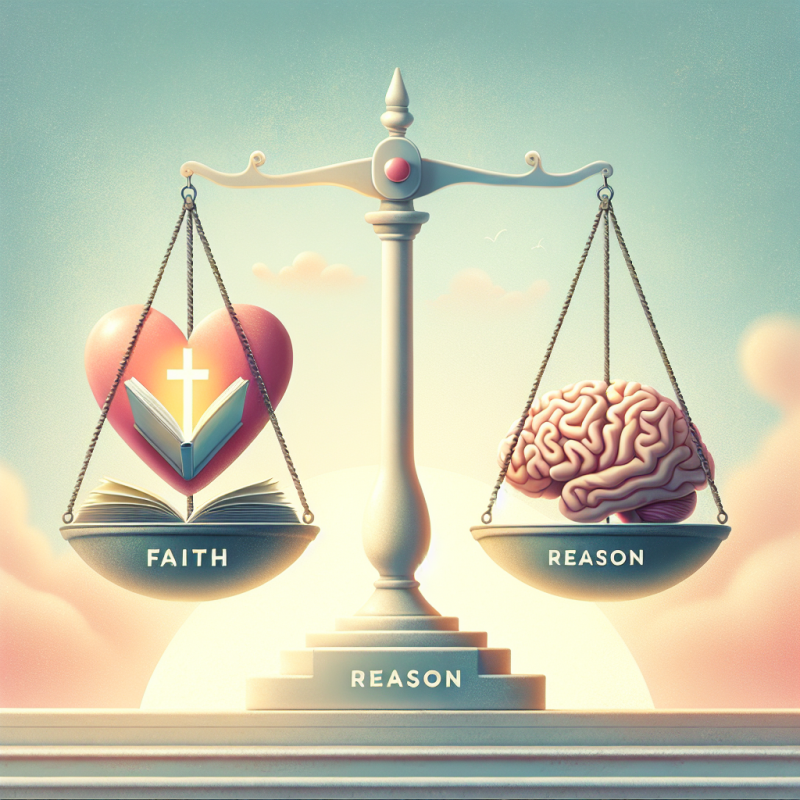The Timeless Synergy of Faith and Reason
Throughout history, the relationship between faith and reason has been a profound, sometimes contested, subject of discussion for theologians, philosophers, and believers alike. These two pivotal dimensions of human experience—faith, the trust in the unseen and eternal, and reason, the pursuit of logic and understanding—form a delicate but powerful harmony when explored in tandem. In today’s modern world, where questions of science, philosophy, and spirituality converge, understanding the synergy of faith and reason is more vital than ever.
Understanding Faith and Reason as Complementary Paths
Faith and reason have often been perceived as opposing forces: faith being purely spiritual and emotional, and reason being purely intellectual and evidence-based. However, this binary view oversimplifies the multifaceted interaction between the two. Far from being adversaries, faith and reason are complementary paths that lead humanity toward truth.
Faith provides the foundation for belief in things that transcend human understanding. It allows individuals to trust in God’s promises, even when they cannot be fully explained or proven by logic. As Hebrews 11:1 states, “Faith is the substance of things hoped for, the evidence of things not seen.”
Reason, on the other hand, serves as a tool to analyze, critique, and deepen understanding of faith. It enables believers to explore Scripture, theology, and the natural world with clarity and intellectual curiosity. St. Thomas Aquinas eloquently argued for the compatibility of faith and reason in his renowned work Summa Theologica, showing how reason can lead the mind closer to the divine mysteries of faith.
Practical Steps to Foster Harmony Between Faith and Reason
For those seeking to cultivate a balanced approach to faith and reason, practical steps can guide this journey:
- Engage with Scripture and Knowledge Together
The Bible is not only a spiritual guide but also a text for intellectual exploration. By regularly studying Scripture alongside philosophical or scientific works, readers can uncover deeper insights into God’s nature and creation. This approach invites believers to see faith not as a blind leap, but as an informed trust.

-
Ask Questions Without Fear
Faith is not diminished by doubt or questioning. On the contrary, many of the Bible’s greatest figures—Moses, Job, and even the Apostle Thomas—wrestled with doubt. Reason allows believers to ask challenging questions about their faith, encouraging growth and a stronger foundation of belief. -
Explore Church History and Theology
The rich tradition of historical Christian thought demonstrates how faith and reason have coexisted over centuries. From the works of Augustine to the writings of C.S. Lewis, these thinkers sought to harmonize their faith with intellectual rigor. -
Build a Community of Thoughtful Faith
Surrounding oneself with a community of believers who value both faith and intellectual growth is essential. Engaging in discussions, attending study groups, or joining interfaith dialogues can foster an environment where both faith and reason are appreciated.

- Participate in the Conversation Between Science and Faith
The interplay between science and Christianity remains a critical example of faith and reason working together. From the awe-inspiring intricacies of the cosmos to the moral dimensions of advancements like artificial intelligence, science can evoke a profound awareness of God’s creativity. Faith, in turn, offers perspective on ethical questions and meaning beyond the material world.

Faith and Reason: A Reflection of God’s Design
When approached in unity, faith and reason reflect the fullness of God’s design for humanity. The Bible itself honors this balance. Jesus called believers to love God not just with all their hearts and souls, but also with all their minds (Mark 12:30). This scriptural foundation demonstrates that God values our intellectual pursuit as much as our spiritual devotion.
In exploring faith and reason, we also imitate God’s nature. God’s creation displays a divine interplay of order (reason) and mystery (faith). From the laws of physics to the transcendent beauty of salvation, God’s work invites believers to grow both spiritually and intellectually.
Conclusion: A Lifelong Journey
As previous articles in this blog have explored, key topics such as faith, free will, God’s purpose, and the divine qualities of love and justice remind us of the depth and intricacy of exploring faith and reason (see “The Connection Between Faith, Free Will, and God’s Purpose”). These discussions highlight the importance of integrating belief with thoughtful discernment.
Ultimately, the harmony of faith and reason is not a static state to achieve but a dynamic journey to embrace. In this lifelong pursuit, believers can find both spiritual fulfillment and intellectual enrichment—always moving closer to the heart of God’s truth.




This article really touched me. It reminded me that doubts and questions don’t undermine faith; they actually strengthen it when approached thoughtfully. Thank you for sharing this balanced perspective.
Faith and reason are not rivals but allies in our journey toward truth. By embracing both, we honor God’s design for humanity to seek Him with heart and mind.